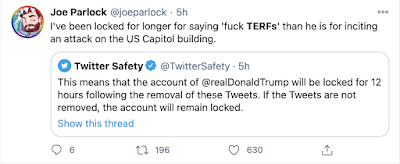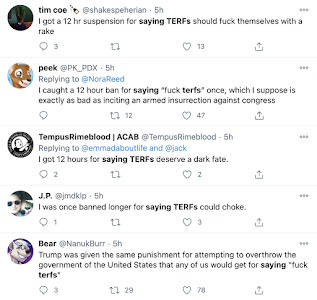My submission to the inquiry by the Governance and Administration Committee into Supplementary Order Paper 59 on the Births, Deaths, Marriages and Relationships Registration Bill
I am asking the Select Committee to reject the Supplementary Order Paper in its entirety, for the reasons given below. I have used the Regulatory Impact Statement prepared by Treasury as the basis of my objection, since it is the only comprehensive examination of the proposals in public circulation and is the basis of the revised Bill. Otherwise, I would have been obliged to rely on the glib public relations efforts of the Department of Internal Affairs, since the proposals have hardly been considered by the print and broadcast media.
The Select Committee should note that on page 3 of the RIS, Treasury records that the Minister of Internal Affairs directed the Bill should “progress this year with a self-identification process to recognise gender on birth certificates.” Treasury observes, “This timeframe has meant the Department’s ability to undertake consultation on introducing a self-identification process or how this may best be given effect has been limited.” The Minister’s mind was made up, despite the lack of any research into the proposals made by the Governance and Administration Committee, which were based on the twenty-nine submissions in favour of self-identification that it had received. The Minister gave Treasury insufficient time to make a proper study of these radical proposals, since they suddenly became a matter of urgency, after languishing in legislative limbo for two years. I suspect the haste is a deliberate ploy by the Minister to stop Treasury doing its job properly and so prevent the Select Committee having sufficient information to give the proposals the informed scrutiny they require. Treasury’s limited ability to undertake consultation should be a particular concern, given the absence of any evidence that the people of New Zealand desire the proposed changes: it is worth remembering that only fifty-four people signed Petition 2014/86, which prompted the Governance and Administration Committee to consider self-identification be included in the Bill.
Treasury’s description of its preferred option in the RIS reveals its weaknesses, which are reflected in the Bill. Paragraph 72 notes:
Under this option a person can amend their registered sex multiple times. However, where a person applies more than once they will have to meet additional requirements to ensure the application is genuine. These additional requirements will be prescribed in regulations. Under this option a person would be able to select markers outside the binary options of male and female. A range of non-binary markers will be prescribed in regulations. A regulation making power to enable these regulations will be included in the Bill. “
I suspect most members of the public will be unaware of this provision. We have been told often enough that the purpose of the Bill is to allow those wishing to amend the sex recorded on their birth certificates to do so without a court process or having to provide evidence of medical treatment. Most of us probably will be unaware that the Bill proposes an entirely new class of “non-binary markers” that will exist in regulations devised outside Parliament, rather in the legislation. Not only that, but persons can change their registered sex many times if they meet additional requirements. How many times persons can change and the nature of the additional requirements they must meet are unknown to Parliament or the people, since these details are wrapped up in regulations as yet unknown. What is in the bag will only be revealed at the end of the show. This is not open government.
In Paragraph75, Treasury writes:
The process is inclusive of all people, including those who cannot or do not wish to receive medical treatment, whose gender may change over time and who identify as non-binary genders. This supports a person’s wider social inclusion and reduces transgender and intersex people’s experiences of stress, or discrimination, when accessing services. The inclusion of a range of non-binary markers is a critical component of introducing self-identification and would bring the process in line with the human rights discourse that recommends a multiplicity of gender markers.
This process is inclusive of sex predators, voyeurs and exhibitionists, since all men will have the right to declare themselves to be women and thus be legally entitled to occupy spaces reserved for women. Teenage boys will also be allowed to self-identify as some other gender, so long as they can find support for their applications. They won’t even have to change their clothes.
At Paragraph 76, Treasury writes:
Prescribing a range of non-binary markers in regulations will also be inclusive as it allows for consultation to be undertaken on the number and terminology of markers. This will enable the Department to gauge transgender and intersex perspectives and the perspectives of specific population groups, such as young people and Māori, Pacific and ethnic communities. Setting the markers in regulation also allows for more flexibility and will future-proof the legislation. Gender theory and terminology evolves rapidly, and regulations can be more easily reviewed and updated than primary legislation to ensure they meet the needs of transgender and intersex people.
I think most people in New Zealand would think gender theory is a load of tosh; but that does not matter to the Government, since the people will not have any say about the regulations. What this approach risks is the Government and its regulations falling into ridicule, both here and overseas. The last time I checked, over a hundred non-binary genders appeared to be in existence, some of which could not be uttered in mixed company: gender encompasses any identity that adolescent minds can conceive.
At Paragraph 77, Treasury attempts to assure us that, “Criminal offences for false declarations can help to deter applications by people who are not genuine or wish to change their gender for unlawful reasons.” Sex predators, voyeurs and exhibitionists will not be deterred by the criminal offence of making a false declaration. They are known to go to extraordinary lengths to get what they want.
At Paragraph 79, Treasury admits, with unexpected candour, that the risk of identity fraud might be, “exacerbated if people can amend their registered sex multiple times.” This is no small matter:
People could abuse the process to obtain birth certificates to create new identities to avoid detection or access services they are not entitled to. Worst case scenarios of fraudulent behaviour include a person receiving multiple benefits or circumventing safeguards preventing money laundering and terrorism financing.
This is the most extraordinary admission: in order to make it less burdensome for people to change their birth certificates, and to keep up with rapidly evolving gender theory, this government will make benefit fraud, money laundering and the financing of terrorism easier. How our international friends and allies will react to this deliberate weakness does not appear to have been considered. However, Paragraph 80 seeks to reassure us:
This risk will be mitigated through the proposed additional requirements. The Bill will make it clear that any additional requirements will be to ensure an application is genuine to mitigate the risk of identity fraud. Additional requirements would not include providing evidence of medical treatment and should be designed to not be overly burdensome or reinstate the barriers that the self-identification process aims to remove. Potential additional requirements could include requiring applicants to return any previous birth certificates, provision of an identity referee or a letter of support from an adult who has known the applicant for over a year.
Treasury has no more idea of what the proposed additional requirements will be than the rest of us, but is confident that obligations such as a letter of support would deter some of the world’s worst criminals from using our system to their advantage.
The absence of consultation is particularly marked at Paragraph 96 of the RIS:
Conversely, groups opposed to self-identification will not be supportive of the change and may reiterate concerns about its impact on protections for women and women’s rights. These concerns are low risk if they exist at all. As stated above, a birth certificate is not considered conclusive evidence of someone’s sex or gender and is not required to access women-only spaces, such as changing rooms or refuges. Gender is already represented on passports via a self-identification process without evidence of this being abused.
If Treasury had spoken to feminist groups, here and overseas, about self-identification, or done some basic research on Internet, it might have learned that the concerns of opponents are certainly not low risk. Mediocre sportsmen can self-identify as women and become champions; those who want to enjoy physically hurting women in contact and combat sports can do so with the blessing of sports bodies run by men. Men can self-identify as women and take positions reserved for women, as has happened in the British Labour Party and, of all places, The Royal College of Obstetricians and Gynaecologists.
Worst of all, in Canada and California, women prisoners have been raped by men who have self-identified as women in order to obtain transfers to women’s prisons. It is starkly noticeable that the advice given by Corrections on its response to self-identification has been blacked out of the RIS. What might happen in our prisons is not low risk or non-existent. This Bill will affect women’s safety, even their lives.
Supplementary Order Paper 59 is an appalling trick being played by the Government on the people of New Zealand. It hides radical change in regulations. It is designed to replace our natural classification of people into male and female sexes with an indefinite number of gender markers – pandering to a tiny minority of activists and narcissists, while duping the vast majority of the population. It will allow, by accident or design, men to assume roles that are reserved for women.
The Select Committee should reject the Supplementary Order Paper 59. The present system is sensible, rational and popular. It does not need to be replaced with this nonsense.
Paul Litterick, PhD.
Tuesday 14th September 2021.

































